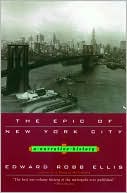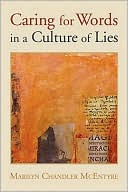Yes, I've been away -- traveling around the country (I went to Texas!) and studying at an economics seminar for a week. I'm off again this Thursday to Pennsylvania, but you can read all about that over
here.
Now, for all my fellow literary-lovers that have been dying for a blog post while I've been away, here is an essay on a book that is an absolute must-read. Very highly recommended by me. Watch out though -- there are several spoilers. If you don't need to be convinced by my essay to read the book, then read the book first and then come back and read my essay. :)
A Light Will Dawn: Alan Paton's Cry, the Beloved CountryCry, the beloved country, for the unborn child that is the inheritor of our fear. Let him not love the earth too deeply. Let him not laugh too gladly when the water runs through his fingers, nor stand too silent when the setting sun makes red the veld with fire. Let him not be too moved when the birds of his land are singing, nor give too much of his heart to a mountain or a valley. For fear will rob him of all if he gives too much.

Alan Paton’s
Cry, the Beloved Country is just as passionate and socially relevant today as it was when first published in 1948. A Zulu pastor, Stephen Kumalo, searches for his lost son in a South Africa turbulently divided by racial injustice. Ultimately, the story portrays Kumalo’s spiritual journey from naiveté to a deeper understanding of his world, from confused anger to abiding peace, from a wavering faith to complete trust in the actions of God.
The opening pages are integral to the rest of the story as they describe the beauty of natural South Africa. With rich green hills and thick matted grass, it is almost a picture of Eden. Indeed, Paton writes, “Stand unshod upon it, for the ground is holy, being even as it came from the Creator” (33). Yet, the “hills break down…They fall to the valley below, and falling, change their nature. For they grow red and bare.” In relation to Kumalo, this latter description embodies his spiritual state at the beginning of the novel. His church is located in the desolate valley, not in the vast and wonderful hills. He enters the pages a broken and suffering old man. Though his character does change by the end of the book, it is not a radical transformation. In fact, he leaves the book, just as he entered, broken and suffering. Change does not happen overnight – it is a gradual process. It will take many years to renew the valley into the image of the glorious hills that surround it. It will also take Kumalo many years to change.
Cry, the Beloved Country shows only the first small steps that he must take.
For a broken man, it is difficult to begin this journey. At the opening of the story, Kumalo receives a letter, urging him to come to the faraway city of Johannesburg. His sister, Gertrude, who had journeyed there once and never returned, has been found, but is very sick. Kumalo, however, is afraid to go to the city to bring her back. Absalom, his son, had traveled to the city to search for Gertrude and never returned. Saving uselessly the money that his son would have used to go to college, Kumalo has built up a wall of lies around himself, thinking they will ease his suffering. Futilely, he tries to convince himself that his son will return, though he knows in his heart he never will. This deception only breeds anger that finally spills out in this scene.
We had a son, he said harshly. Zulus have many children, but we had only one son. He went to Johannesburg, and as you said—when people go to Johannesburg, they do not come back….My own son, my own sister, my own brother. They go away and they do not write any more. Perhaps it does not seem to them that we suffer. Perhaps they do not care for it. (39)
Kumalo does finally decide to journey to Johannesburg and, eventually, he is reunited with his sister, brother, and only son. These meetings are far from happy, however. His sister has become a prostitute. His brother is a hardened man (he has lost all faith in Christ and is embittered against the white men, using his powerful voice to speak out against them at political rallies). And, most tragically of all, his son has killed a man and is doomed to die.
Yet, these individual trials form the foundation upon which Kumalo is able to grow spiritually. The man his son killed was Arthur Jarvis, a white man who fought for the rights of the black people in Africa. Living in his isolated valley, Kumalo had little contact with white men. In the city, however, he is able to witness more clearly the struggles between the two races. Through the murder, he is able to meet Jarvis’ father who lives in the green hills. Though the two lived in such close proximity to each other, they never met or talked to each other before. It is as though Kumalo’s sight had been myopic, able to see only his own desolate valley. Yet, it is from the white men that restoration will come to his valley and peace to his soul. At the beginning of the novel, his friend, Msimangu, had told him, “The white man has broken the tribe. And it is my belief—and again I ask your pardon—that it cannot be mended again (56).” Kumalo does not fully understand this statement until he witness for himself the hostility in the city and the resentment of his brother. Later on, Msimangu clarifies his statement with the words, “I see only one hope for our country, and that is when white men and black men….desiring only the good of their country, come together to work for it (71).”
Even though Absalom killed Jarvis’ son, the father reaches out (in the memory of Arthur who fought so hard for the rights of the black people) to help restore the valley. His grandson visits Kumalo and learns about the Africans’ plight. Jarvis then sends milk to the starving children and an agricultural demonstrator to teach the Africans how to farm. Slowly, Kumalo is able to see and understand Msimangu’s words as they become a reality. At first, Kumalo could not comprehend why he had to suffer so much. His heart was full of anger and hatred. If his son, however, had not killed Jarvis’ son, restoration would probably never have come to his valley. In the depths of his affliction, Kumalo had told Msimangu, “There is no prayer left in me. I am dumb here inside. I have no words at all” (105). At first, he could not see God’s perfect plan unfolding through these tragedies, but Msimangu encouraged him that “we are not forsaken” (123). As Kumalo looked around him, he suddenly realized that even in his suffering God was there. “Who gives, at this one hour, a friend to make darkness light before me?” he asked himself.
The novel ends with Kumalo waiting on a mountain on the day of his son’s execution. The anger that he felt over his suffering is gone. He now understands what it truly means in Romans 8:28, “And we know that God causes all things to work together for good to those who love God, to those who are called according to His purpose.” God used his trials to bring restoration to his valley and peace to his soul. As Kumalo watches the sun rise in the east, he begins to understand more deeply about God’s plans for his own country. Though now it seems that Africa is filled with darkness and hostility,
The light will come there. For it is the dawn that has come, as it has come for a thousand centuries, never failing. But when that dawn will come, of our emancipation, from the fear of bondage and the bondage of fear, why, that is a secret. (312)
Just as Kumalo could not see the ends of his suffering when he was in the midst of it, so he cannot yet see how Africa will come out of its darkness. Yet he knows that it must. For, as Msimangu had told him, God will never forsake them.
Works CitedPaton, Alan. Cry, the Beloved Country. 1948. New York, NY. Scribner, 2003.
Labels: book reviews, bookish musings
Posted by Nicole Bianchi at 10:25 PM
|

![]()



 This is life seen through the eyes of a writer. A blog that critically examines literature, music, and film. NB, initials which coincidently coinside with the Latin words "nota bene" (mark well), belong to the blog poster, a bibliophile who likes to haunt libraries and book stores, talk about all things bookish, and ramble at any length on things regarding literature. Many of the articles posted here were written as essays for high school and college.
This is life seen through the eyes of a writer. A blog that critically examines literature, music, and film. NB, initials which coincidently coinside with the Latin words "nota bene" (mark well), belong to the blog poster, a bibliophile who likes to haunt libraries and book stores, talk about all things bookish, and ramble at any length on things regarding literature. Many of the articles posted here were written as essays for high school and college.





